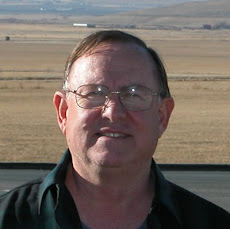Monday, August 31, 2009
Still Another Example
For a very apro pro column on politicians and their innate need to look out for their own interests first, see the column by Tony Blankley in the Washington Times of August 25, here. The subject is President Johnson and his turmoil over the Vietnam war, but the unintended point of the column is that politicians protect their own interests first and foremost.
Friday, August 28, 2009
And Still More
This from Newt Gingrich, in the context of how politicians bungled the Cash For Clunkers program:
"They're not concerned with the long-term, just the next election."
From his column:
Read his column here: http://www.humanevents.com/article.php?id=33275
"They're not concerned with the long-term, just the next election."
From his column:
Three Reasons Why Government Can't Run Health Care
by Newt Gingrich
08/26/2009
Wednesday, August 26, 2009
More on Election Scams
A reader sent me the following:
Liberal blogger Matthew Yglesias is apparently shocked that liberal politicians would rather maintain their own power than work for "the public good." George Mason University law professor (and Reason contributor) Ilya Somin patiently explains to Yglesias how the political world actually works:
via Reason Magazine - Hit & Run on 8/24/09
Liberal blogger Matthew Yglesias is apparently shocked that liberal politicians would rather maintain their own power than work for "the public good." George Mason University law professor (and Reason contributor) Ilya Somin patiently explains to Yglesias how the political world actually works:
A politician willing to do anything to take and hold on to power will have a crucial edge over an opponent who imperils his chances of getting elected in order to advance the public interest. The former type is likely to prevail over the latter far more often than not. This is especially true in a political environment where most voters are often ignorant and irrational about government and public policy. Candidates have strong incentives to pander to this ignorance and exploit it in order to win elections. Those unwilling to exploit public ignorance because they place the public interest above political success are likely to be at a serious disadvantage relative to their less scrupulous opponents. Thus, those who value power above other objectives are more likely to succeed politically. As economist Frank Knight wrote back in the 1930s, "[t]he probability of the people in power being individuals who would dislike the possession and exercise of power is on a level with the probability that an extremely tender-hearted person would get the job of whipping master in a slave plantation."
Subscribe to:
Comments (Atom)

